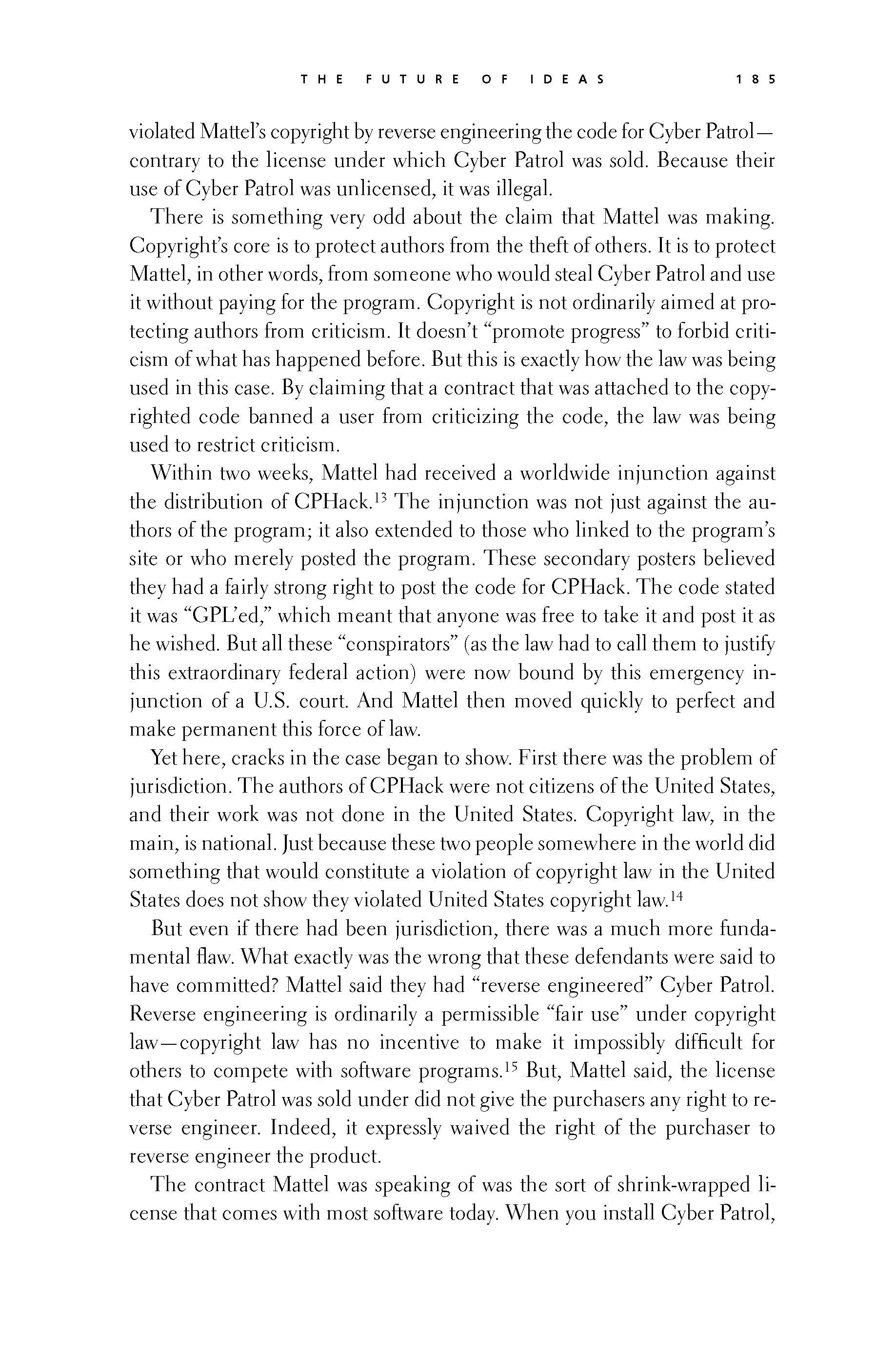 p184 _
-chap- _
toc-1 _
p185w _
toc-2 _
+chap+ _
p186
p184 _
-chap- _
toc-1 _
p185w _
toc-2 _
+chap+ _
p186
violated Mattel's copyright by reverse engineering the code for Cyber Patrol --
contrary to the license under which Cyber Patrol was sold. Because their
use of Cyber Patrol was unlicensed, it was illegal.
There is something very odd about the claim that Mattel was making.
Copyright's core is to protect authors from the theft of others. It is to protect
Mattel, in other words, from someone who would steal Cyber Patrol and use
it without paying for the program. Copyright is not ordinarily aimed at pro-
tecting authors from criticism. It doesn't "promote progress" to forbid criti-
cism of what has happened before. But this is exactly how the law was being
used in this case. By claiming that a contract that was attached to the copy-
righted code banned a user from criticizing the code, the law was being
used to restrict criticism.
Within two weeks, Mattel had received a worldwide injunction against
the distribution of CPHack.[11-13] The injunction was not just against the au-
thors of the program; it also extended to those who linked to the program's
site or who merely posted the program. These secondary posters believed
they had a fairly strong right to post the code for CPHack. The code stated
it was "GPL'ed," which meant that anyone was free to take it and post it as
he wished. But all these "conspirators" (as the law had to call them to justify
this extraordinary federal action) were now bound by this emergency in-
junction of a U.S. court. And Mattel then moved quickly to perfect and
make permanent this force of law.
Yet here, cracks in the case began to show. First there was the problem of
jurisdiction. The authors of CPHack were not citizens of the United States,
and their work was not done in the United States. Copyright law, in the
main, is national. Just because these two people somewhere in the world did
something that would constitute a violation of copyright law in the United
States does not show they violated United States copyright law.[11-14]
But even if there had been jurisdiction, there was a much more funda-
mental flaw. What exactly was the wrong that these defendants were said to
have committed? Mattel said they had "reverse engineered" Cyber Patrol.
Reverse engineering is ordinarily a permissible "fair use" under copyright
law -- copyright law has no incentive to make it impossibly difficult for
others to compete with software programs.[11-15] But, Mattel said, the license
that Cyber Patrol was sold under did not give the purchasers any right to re-
verse engineer. Indeed, it expressly waived the right of the purchaser to
reverse engineer the product.
The contract Mattel was speaking of was the sort of shrink-wrapped li-
cense that comes with most software today. When you install Cyber Patrol,
[[185]]
p184 _
-chap- _
toc-1 _
p185w _
toc-2 _
+chap+ _
p186